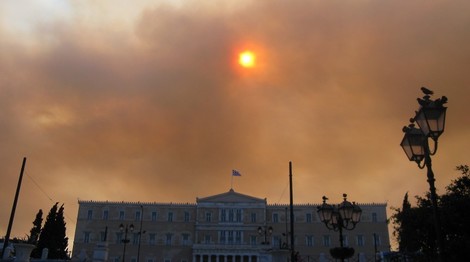Your podcast discovery platform
Curious minds select the most fascinating podcasts from around the world. Discover hand-piqd audio recommendations on your favorite topics.

piqer for: Climate and Environment Global finds Globalization and politics
I'm a freelance journalist, currently based in Madrid. I used to be a News Producer at CNBC in London before, but I thought a little bit more sun might do me good. Now I write for several news organizations, covering a range of topics, from Spanish politics and human rights for Deutsche Welle to climate change for La Marea.
Why Is Southern Europe Burning?
Greece's wildfires this week have reached a death toll of 80. They're very close to becoming the deadliest in Europe in a century (82 died in France in 1949). In 2017, 62 people died and 250 were injured in the Leiria wildfire in Portugal. That was just a few months before swaths of Northern Portugal and Northwestern Spain burned to a cinder in just a couple of days. And, in 2007, 77 lives were lost to the flames in Greece.
This 2016 article by Climate Home editor Karl Mathiesen puts the finger on two key elements to this increased flammability in Southern Europe. One is climate change. The other, a change in land management practices. All this is conveniently fueled by austerity measures that enforce cutbacks on fire departments all over the region.
According to the article, the number of small farms and farming workforce is declining all over the Mediterranean. Although the overall area dedicated to farming is growing, the economy is focusing on tourism, leaving the countryside to return to a wild state. This means more fuel in the forest.
Once smallholders abandon less productive land, the forests return, less wood is gathered from the understory and fewer domesticated animals graze beneath the trees. The return of a wilder Europe has been celebrated by advocates of “rewilding”. It has seen the flourishing of wolves, bears and bison in places they were once lost. But in the hot, dry southern countries of Greece, Spain, Italy and Portugal, a land full of fuel has lead to the inevitable.
This article is two years old already, but that doesn't make it any less relevant, as the issues remain unchanged. Plenty of data, relevant interviews, and lucid analysis make this article an excellent introduction to the problems of the Mediterranean region's rural areas—problems that go way beyond climate change.
The opening about ancient Greek wine is catchy and very unusual for Mathiesen, who usually confines himself to hard policy reporting. You should write features more often, Karl!
